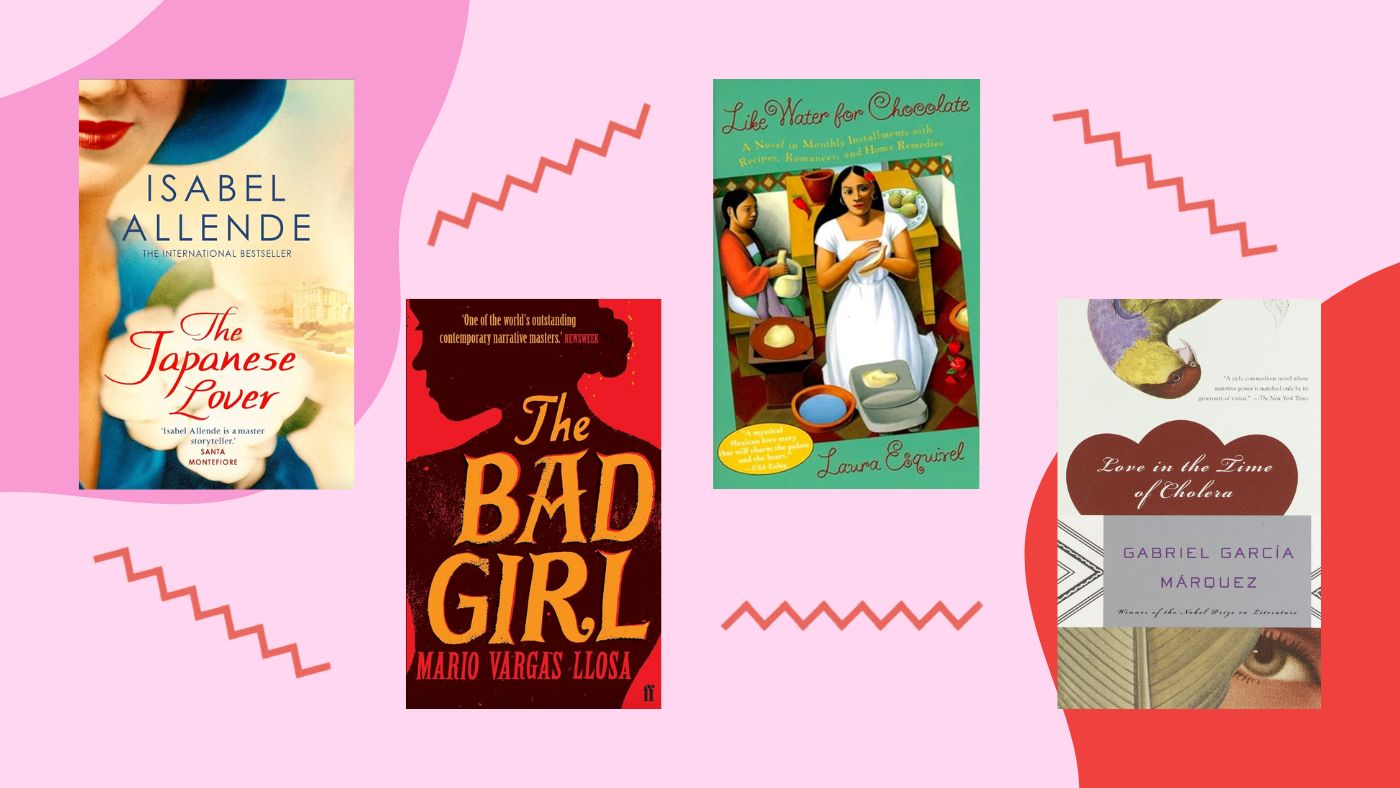Whether you’re in love, single, married, or in a “complicated” sentimental state, Valentine’s Day is the ideal occasion to cuddle up and entertain yourself with a romantic book. To help, I’ve rounded up four unforgettable classics of Latin literature that reflect the different sides of falling in love, from clandestine romance to frenetic and obsessive passion to a fondness that transcends time, distance, and misadventures. If you want help selecting some Valentine’s Day books, don’t hesitate to pick up these exciting and absorbing literary gems.
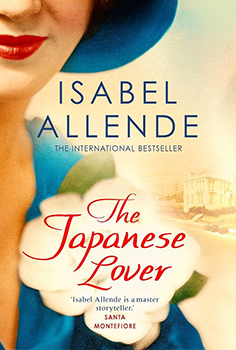
The Japanese Lover / El Amante Japonés (2015) by Isabel Allende
“The need for her to know she was loved was insatiable.”
Isabel Allende in The Japenese Lover
Chilean author Isabel Allende’s long career has yielded some of the most beloved and acclaimed books in the romance genre, making picking just one of her Valentine’s Day books a challenge. And her eighteenth novel, The Japanese Lover, is a sweeping love story that moves back and forth between contemporary San Francisco, Nazi Germany’s invasion of Poland, and the bombing of Pearl Harbor.
The Japanese Lover begins with the present-day life of octogenarian screen printer Alma Belasco, a wealthy Jewish lady who in the twilight of her life confesses her deepest secrets to two people close to her: her adored grandson, Seth Belasco, and her attentive caretaker, Irina Bazili.
Allende then intertwines the present time with World War II, as Poland falls into Hitler’s cruel hands. The novel flashes back to 1939, when Alma’s parents decide to send her from Warsaw to San Francisco to live safely with her aunt and uncle Lilian and Isaac Belasco. It is supposed to be a temporary visit, but tragedy prevents her from returning home.
In the opulent Sea Cliff neighborhood, Alma falls deeply in love with the gentle Ichimei Fukuda, the youngest son of the Belascos’ Japanese gardener. Theirs is an almost perfect love. Unfortunately, war soon comes to the United States as well, and after the bombing of Pearl Harbor, Alma and Ichimei’s relationship is shattered when the authorities move the Fukuda family (like countless Japanese) to an internment camp in Utah.
Spun with mastery and charm, The Japanese Lover reconstructs the life story of Alma Belasco and her eternal love, Ichimei Fukuda. This is one of those stories that you’ll want to devour in one sitting.
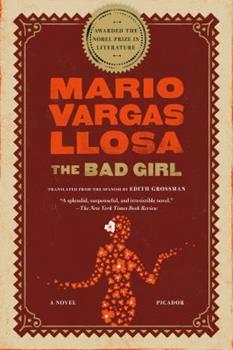
The Bad Girl / Travesuras de la Niña Mala (2006) by Mario Vargas Llosa
“I love you too, bad girl. At least you’ve given me a good story of my own to write.”
Mario Vargas Llosa in The Bad Girl
The Bad Girl is the first romantic novel by Peruvian writer and Nobel Prize winner Mario Vargas Llosa.
This fiction begins in the Lima neighborhood of Miraflores, in the summer of 1950, when Ricardo Somocurcio meets Lily, the bad girl, and falls in love with her “mischievous laugh.” What follows is an asymmetrical and capricious love affair, in which the Bad Girl destroys Ricardo’s life again and again and again.
Over the course of four decades and in various parts of the world, Ricardo and Lily’s paths cross intermittently, haphazardly, and shatteringly. The problem is that while he offers an open heart, she ignores the depth of his feelings, exploits his generosity, and mocks his sexual prowess. The deeper the heroine hurts the hero, the more the hero treasures her.
Predictably, this alarming and unhealthy infatuation becomes the source of Richard’s miseries and joys. Towards the end of the book, an inevitable question arises: Can the Bad Girl feel any love at all? And with this question, the Peruvian veteran forms a seductive and perverse romance that moves between abandonment and reconciliation.
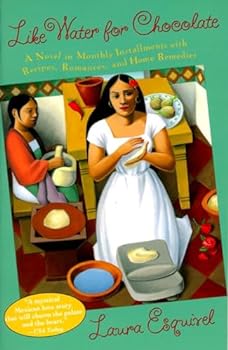
Like Water for Chocolate / Como Agua Para Chocolate (1989) by Laura Esquivel
“You don’t have to think about love; you either feel it or you don’t.”
Laura Esquivel in Like Water for Chocolate
Another Latin romantic novel that stands among Valentine’s Day books is Like Water for Chocolate, Laura Esquivel’s stellar debut.
Magical, bittersweet, and full of recipes, Like Water for Chocolate takes place during the Mexican Revolution and follows the story of Tita, the youngest daughter of the De la Garza ranch. Tita has been forbidden to marry; instead, the young girl must care for her tyrannical mother, Mamá Elena, until her death.
Tita, however, falls in love at first sight with her fiery neighbor, Pedro Muzquiz, who feels similarly about her. When Pedro learns of Mamá Elena’s unwavering tradition, he curiously marries Rosaura, one of Tita’s older sisters. To the astonishment of his own family, Pedro confesses to his father that the only intention of this engagement is to remain close to his true love.
Condemned by family tradition and heartbroken, Tita then turns to her culinary skills. In the kitchen, she finds refuge, solace, inspiration, and a glimmer of hope. As the years pass, Tita must make a stark choice between her memorable first love and an unexpected new suitor who offers solace and security.
Esquivel’s exquisite novel touches on profound themes such as family impositions, gender roles, the search for independence, and lasting relationships. Like Water for Chocolate is an intense story capable of seducing the imagination, the heart, and the taste buds.
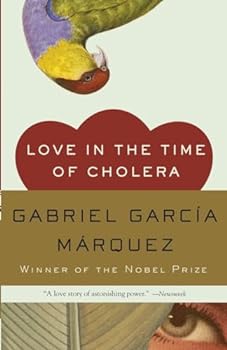
Love in the Time of Cholera / El Amor en los Tiempos del Cólera (1985) by Gabriel García Márquez
“’Love is the only thing that interests me.”
Gabriel Garía Márquez in Love in the Time of Cholera
No Valentine’s Day books list would be complete without Gabriel García Márquez’s poignant and nuanced novel, Love in the Time of Cholera, loosely inspired by his own parents’ love story.
In it, Florentino Ariza and Fermina Daza fall naively and fervently in love in their younger years. “Neither one could do anything except think about the other, dream about the other, and wait for letters with the same impatience they felt when they answered them.” But, chaos ensues when the beautiful Fermina puts an end to their relationship and decides to marry a wealthy and renowned doctor.
While Fermina settles into her new married life, Florentino remains trapped in his youthful feelings. Hopelessly in love, Florentino decides to wait until she is free again. Fifty-one years, nine months, and four days must pass before Florentino and Fermina can consummate their stubborn and almost impossible relationship.
On more than one occasion, the Colombian Nobel laureate commented that Love in the Time of Cholera was his favorite book. Check it out this Valentine’s Day and it may be yours too.
